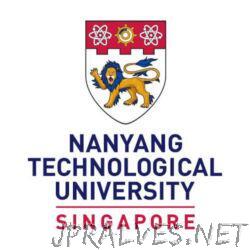Other
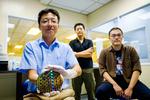
“Scientists from the NTU Singapore and the Korea Institute of Machinery & Materials (KIMM) have developed a technique to create a highly uniform and scalable semiconductor wafer, paving the way to higher chip yield and more cost-efficient semiconductors. Semiconductor chips commonly …
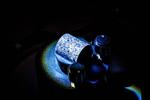
“Scientists from NTU Singapore, have developed a fast and low-cost imaging method that can analyse the structure of 3D-printed metal parts and offer insights into the quality of the material. Most 3D-printed metal alloys consist of a myriad of microscopic …
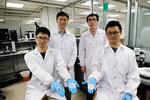
“NTU Singapore scientists have developed paper-thin biodegradable zinc batteries that could one day become an environmentally sustainable option for powering flexible and wearable electronic systems. These zinc batteries are made up of electrodes (through which the electrical current leaves or …
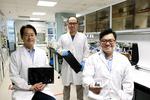
“Plastics found in electronic waste (e-waste) are rarely recycled due to their complex composition and hazardous additives, but scientists at NTU Singapore have developed a new use for them – by repurposing them as an alternative to the plastics used in …
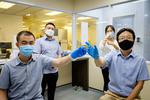
“To enable the development of wearable devices that possess advanced ultraviolet (UV) detection functions, scientists from NTU Singapore have created a new type of light sensor that is both flexible and highly sensitive.While invisible to the human eye, UV …

“A team of scientists at NTU Singapore has developed millimetre-sized robots that can be controlled using magnetic fields to perform highly manoeuvrable and dexterous manipulations. This could pave the way to possible future applications in biomedicine and manufacturing. The research …

“A team of Nanyang Technological University, Singapore (NTU Singapore) researchers has designed a ‘smart’ device to harvest daylight and relay it to underground spaces, reducing the need to draw on traditional energy sources for lighting. In Singapore, authorities are looking …
News NTU Singapore scientists develop laser system that generates random numbers at ultrafast speeds
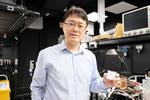
“An international team of scientists has developed a system that can generate random numbers over a hundred times faster than current technologies, paving the way towards faster, cheaper, and more secure data encryption in today’s digitally connected world. The …
“Researchers from Nanyang Technological University, Singapore (NTU Singapore), Singapore University of Technology and Design (SUTD) and Khoo Teck Puat Hospital (KTPH) have developed a new way to create “food inks” from fresh and frozen vegetables, that preserves their nutrition and …
News NTU Singapore researchers develop flexible crystal, paving the way for more efficient bendable electronics
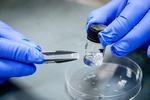
“A team of researchers led by Nanyang Technological University, Singapore (NTU Singapore) has developed a new material, that when electricity is applied to it, can flex and bend forty times more than its competitors, opening the way to better micro …

